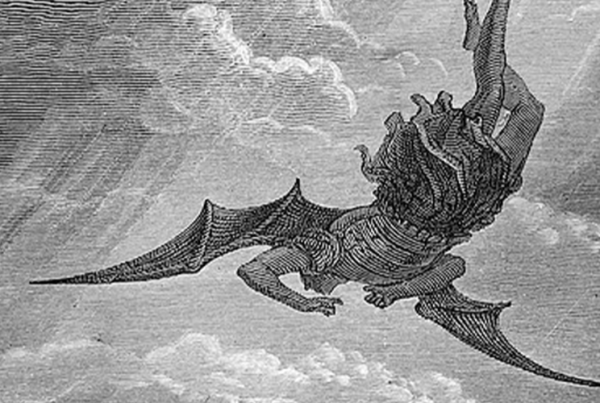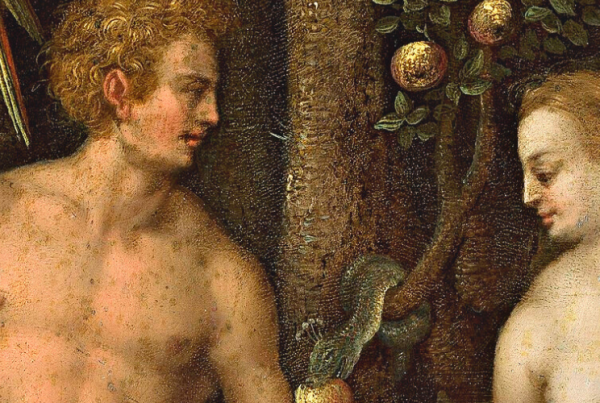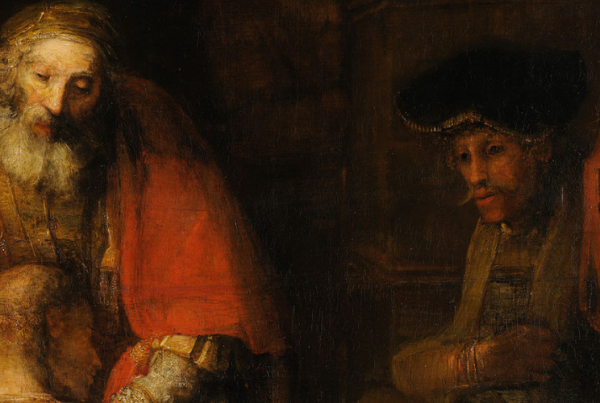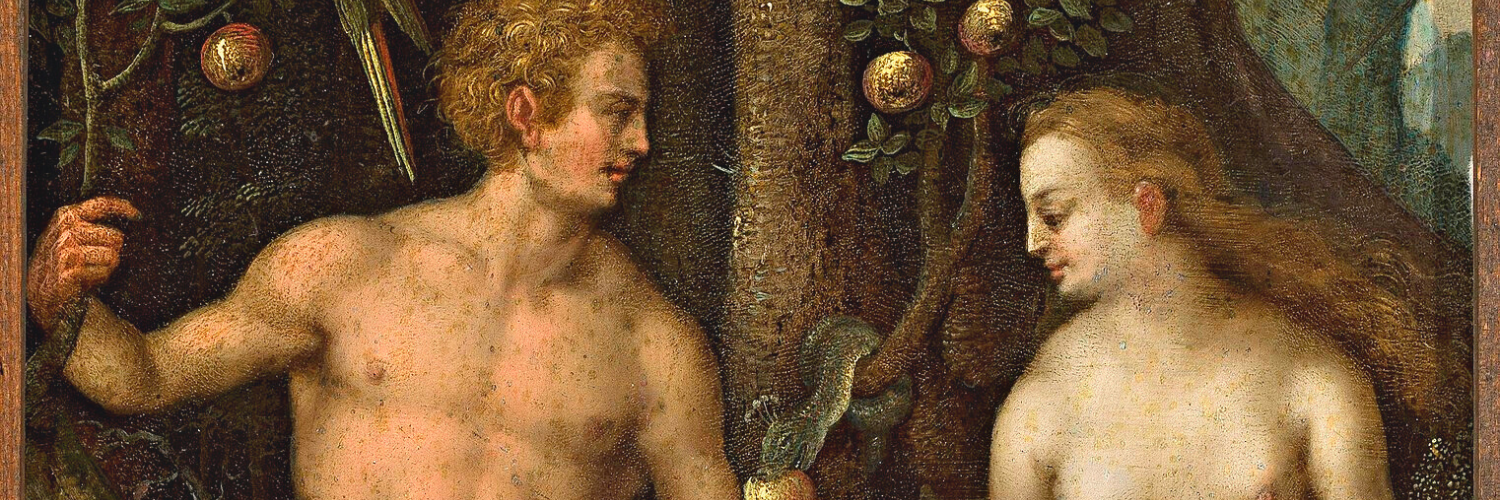
Sin: Original and Deadly
Fr. Paul Stein
Today, so many people get the Book of Genesis wrong. They think that, because current scientific knowledge and theory explain our human origins in the Big Bang and evolution, the story of Adam and Eve is not true. The difficulty lies in a failure to appreciate that there are different literary ways to tell the truth. A newspaper should attempt to tell the truth not only in its “factual” stories, but also in its other sections. Advertisements should not tell lies. Even the comics tell the truth in their own way; that is why they are, or should be, humorous.[1]
Science as a field of study and as a methodology for learning about the universe is a much more recent phenomenon in human history. It is a wonderful way to come to know the truth. The story of Genesis tells the truth as well, but in a way understood long before science ever existed; Genesis was never intended to be a scientific account. It does, however, answer an urgent question: why is there evil?
Back when the book of Genesis was written, the Israelites were surrounded by nations and their attendant cultures that were pagan. Typically, these cultures had their own creation myths, such as the Enuma Elish of Babylon. In these myths, the creation of humanity was the result of a conflict or battle between the gods. Thus, humanity’s existence was not originally planned; it was, in effect, an afterthought and incidental. Conflict was already part of the cosmos.
While the story of Genesis uses the mythopoetic language and structure common to Middle Eastern cultures at the time, it does so to communicate the truth. In contrast to pagan creation myths, the one God, purposefully and intentionally created humanity as the pinnacle of creation; wonderfully, he creates humanity in his own image and likeness. At each stage, creation is declared to be “good.”
If God created all things as good: from whence came evil? The story clearly tells us that it came from the misuse of the free will given by the Creator to his creatures. In the story, the serpent represents the tempter, who is nothing more than a creature himself. While the Hebrew text doesn’t use the word, ha satan would be transliterated into many languages, and can be translated as the “adversary.”
The temptation itself is a twisting of the truth, or a half-truth, which is often the most effective form of propaganda. The serpent asks: “Did God really say, ‘You shall not eat from any of the trees in the garden’?” (Gen 3:1). The serpent knows the truth, that God only prohibited the man and woman from eating from the tree of the knowledge of good and evil.
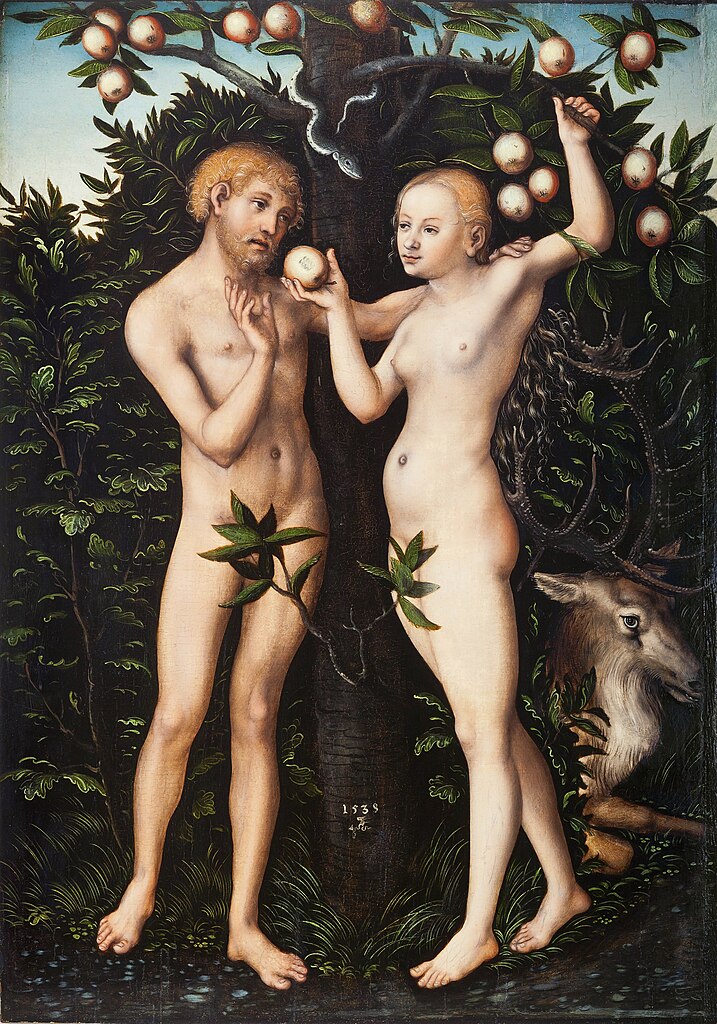
Tragically, the woman in response begins to twist the truth herself: “God said, ‘You shall not eat it or even touch it, or else you will die’” (Gen 3:3). God only prohibited them from eating of the tree; he said nothing about touching it. The serpent continues: “You certainly will not die! God knows well that when you eat of it your eyes will be opened and you will be like gods, who know good and evil” (Gen 3:4-5).
The first lie is that the man and woman will not die. The second is more insidious: telling them that they “will be like gods” implies both that they are not already like God and that God is holding back on them. Tragically, the first man and woman failed to believe that God created them in his image and likeness. The fact that they could eat anything from the garden with the sole exception of the fruit from the tree of the knowledge of good and evil shows that he was giving them everything that is good.
There is great speculation as the why God prohibited them from eating from the tree of the knowledge of good and evil; after all, doesn’t God want humanity to know the truth? The question lies in what type of knowledge the tree represented in the story. The first man and woman know, in general, what is right and wrong. In contrast, the tree, in part, represents experiential knowledge of good and evil. For example, the next chapter of Genesis (chapter four) speaks of how “Adam knew his wife Eve;” that is how Cain and Abel were born (Gen 4:1). When the first man and woman sought knowledge of good and evil, they were rejecting God, seeking to be their own “gods” very much in the pagan sense. This was the original sin. While they did not drop dead on the spot, it is through original sin that death entered the world. The disorder of physical evil now affected humanity.
The results of Original Sin can be seen immediately in the story: “Then the eyes of both of them were opened, and they knew that they were naked; so they sewed fig leaves together and made loincloths for themselves” (Gen 3:7). They were not physically blind before eating of the fruit; they had seen each other naked. However, it is how each of them beheld the other that changed. They no longer saw each other as persons, the image and likeness of God; they started to see each other as an object of lust. Original sin marks the loss of the supernatural gifts of God: Original Justice and Holiness. They lost the grace of God’s friendship and the right ordering of their passions. With Original Sin came concupiscence, the inclination to sin (see the Catechism of the Catholic Church, #2515). With Original Sin, man’s intellect became clouded and his will was weakened.
They no longer
saw each other
as persons,
the image and likeness of God;
they started to see each other as an object
It is the stain of original sin and all its effects that now permeate the rest of the biblical narrative. For example, the same chapter of Genesis (four) that describes Cain and Abel’s birth describes Cain’s murder of Abel. What the story shows is that through human generations, original sin is passed on to the descendants of the first man and woman.
The story in chapter three does continue unusually, in comparison with the way pagan gods were portrayed in ancient societies: God doesn’t destroy the first man and woman for such an affront. While modern readers may think his reactions are harsh, in reality, they are merciful. He starts by arranging for proper loin clothes made of leather instead of the ones they had created out of leaves (Gen 3:21). He then banishes them from the garden. Here the punishment is also merciful because if were they to eat from the Tree of Life, they would live forever in the state of Original Sin. (Yes, up until the first sin, they were permitted to eat from that tree!) God would now have to do something far more radical to give humanity everlasting life…
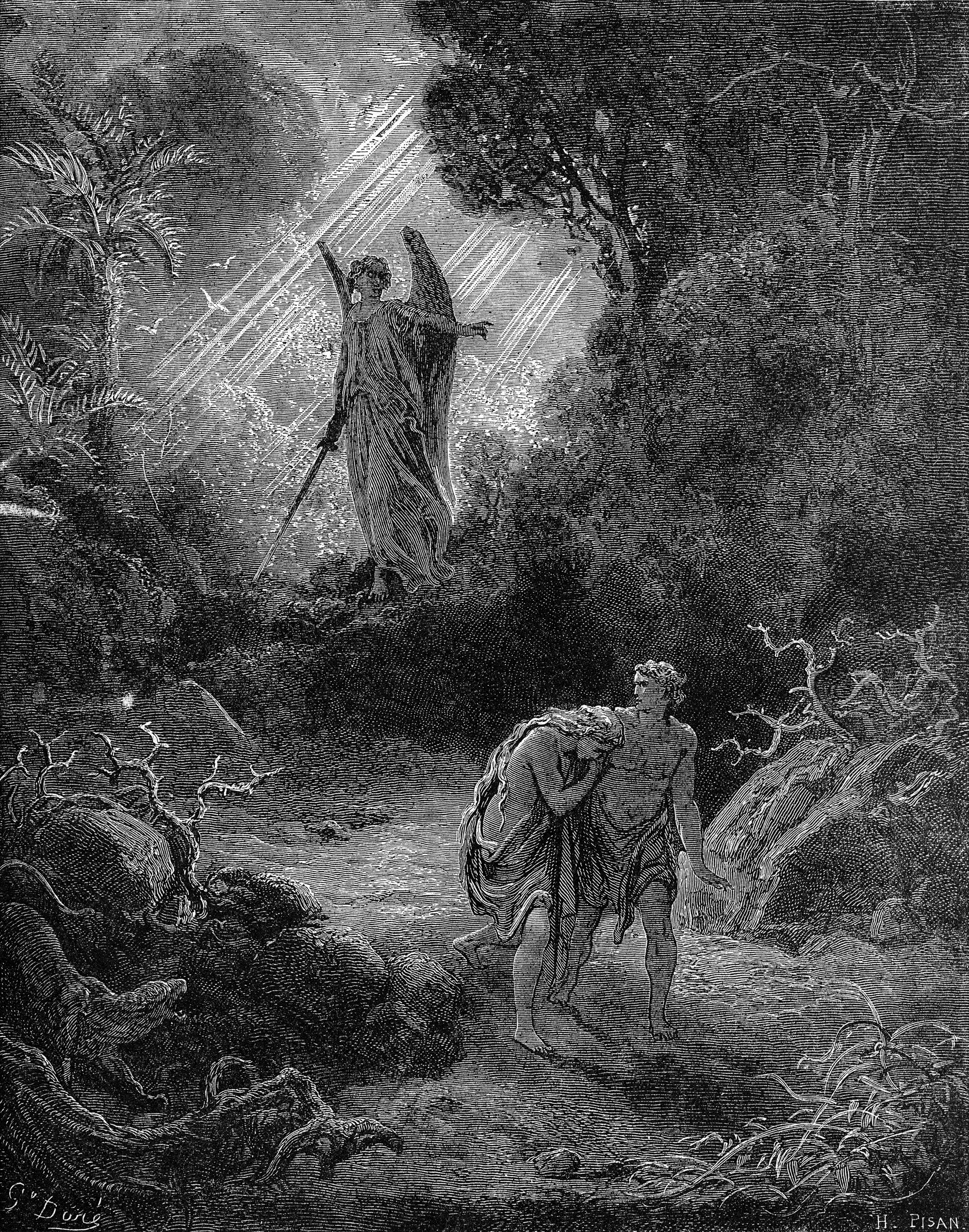
What This Means For Us
While at first glance the story of Genesis may seem utterly bleak, it is extraordinarily hopeful; it should give us modern-day sinners hope for ourselves. Evil is not God’s punishment on us, but rather the consequences of our sin. Yet, he wants to save us and grant us everlasting life. God holds nothing back from us, that includes his only begotten Son, Jesus Christ.
Footnotes
[1] For example, I think the comic Dilbert is funny because it is so true. If you studied engineering, as this author has, and have worked or work for a large company.
For Further Reading On This Topic
